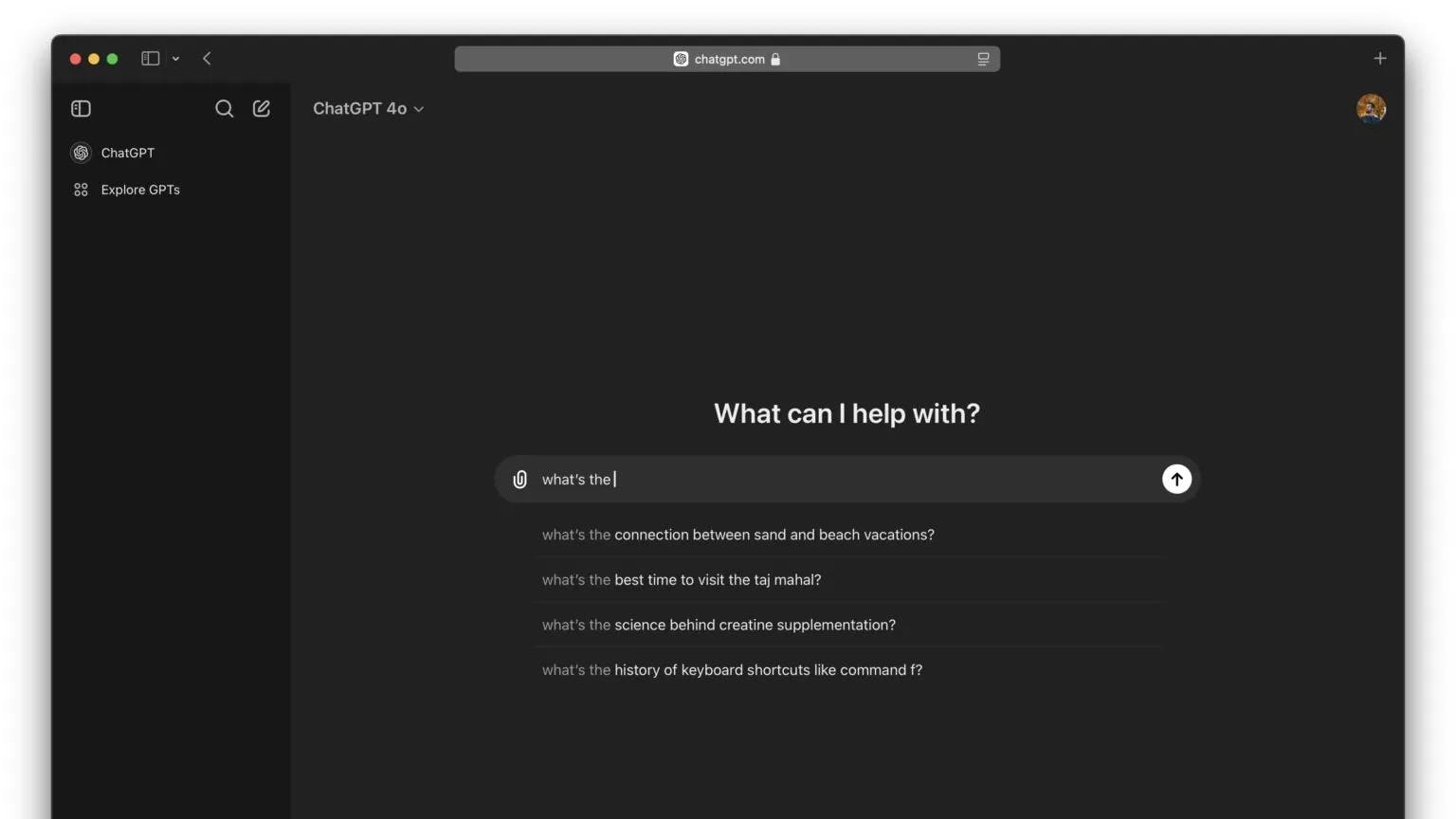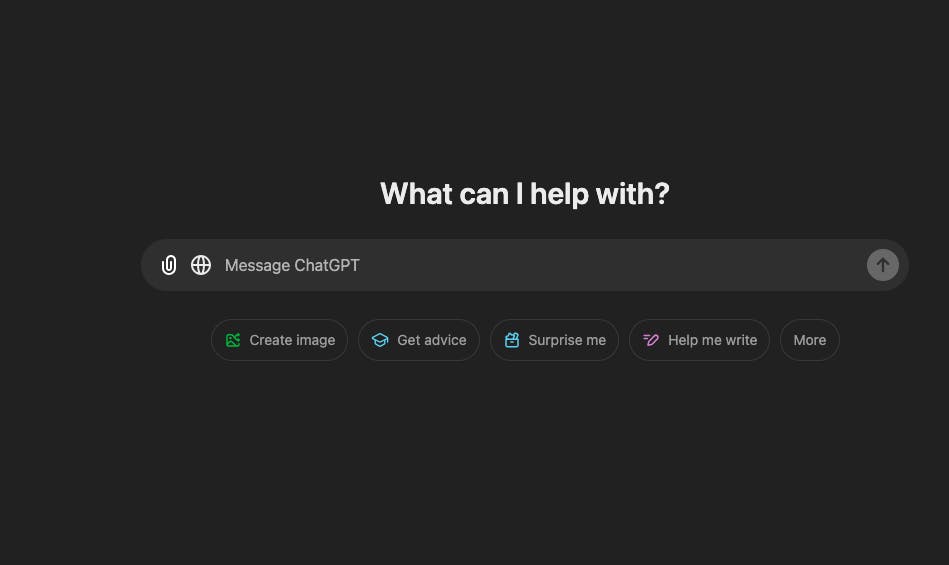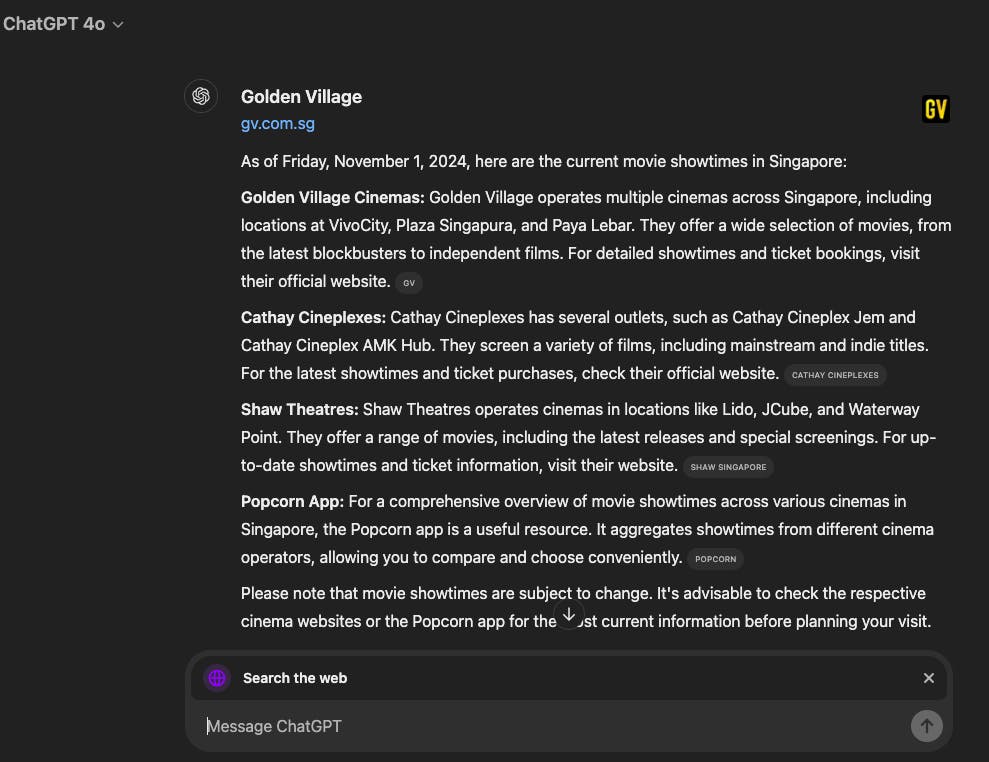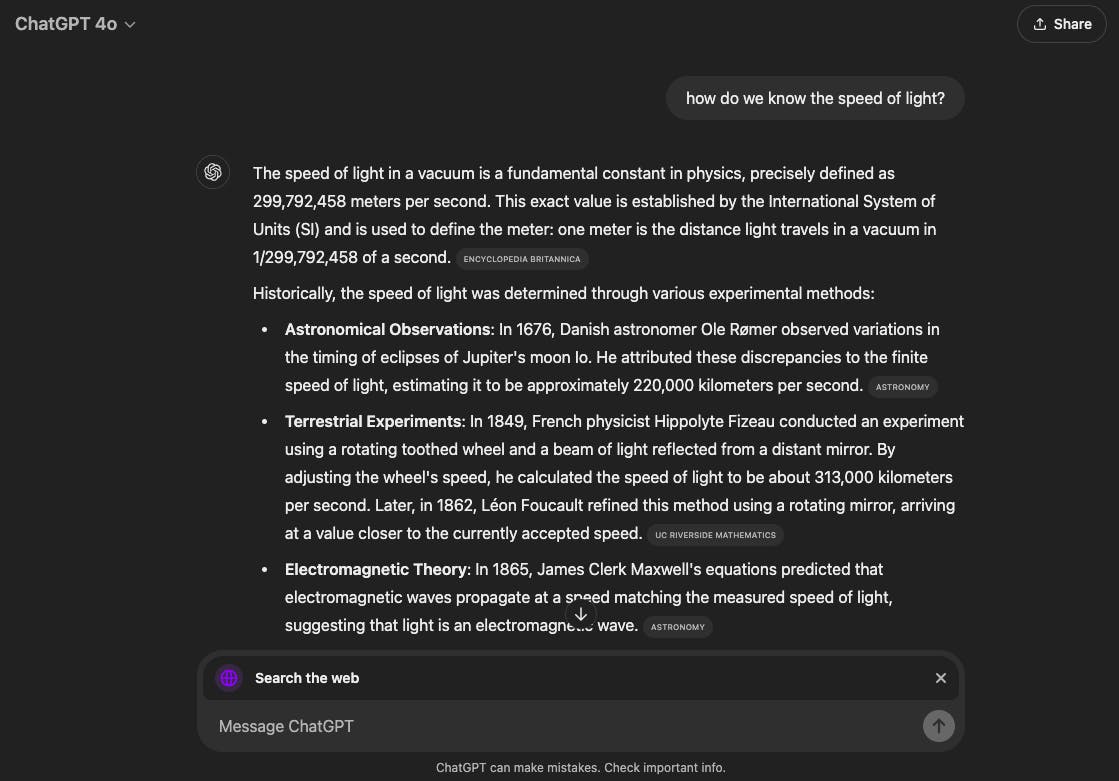OpenAI is getting closer to competing directly with Google
Search
OpenAI has rolled out live internet searches to a bunch more paid users.
.png?w=700)
OpenAI is getting closer to competing directly with Google Search.
It's rolled out its basic "search the web" feature to most paid users, finally connecting their ChatGPT interface to the internet in real time.
The company has also quietly added an auto-complete feature to ChatGPT web. It now suggests searches based on the terms you're typing.
Auto-completions

The auto-complete suggestions don't take previous chats into account, according to reporters at Android Authority, who first spotted the update.
The auto-complete feature is available for whichever GPT model you use, so long as you're logged in to a free or paid account.
It's somewhat limited at the moment and often stops making suggestions after a user types more than two or three words.
It also appears to work better for searches written in the form of questions, rather than keywords.
As Android Authority suggested, the feature "laid the groundwork" for GPT search, which allows users to query the internet via ChatGPT web.
Search the web
As of today, a basic "search the web" feature has been rolled out to most paid users.
Everyone with a Plus or Teams subscription should now have access. Those on Enterprise and Edu plans will be able to use search over the next few weeks, while Free users will get access in the coming months.
The new search interface can be accessed via a globe icon at the left of the chat interface:

When you click on this icon, ChatGPT suggests a list of trending search topic. Right now, those are "Young Thug", "Thursday Night Football 2024," "Freddie Freeman" and "Trump Garbage Truck."
It's not clear how these trends are populated. They're US-heavy and don't appear to based on the location of a specific user (Indiehackers.com accessed ChatGPT from Singapore).
If none of these trends are for you, you can enter your search into the regular "Message ChatGPT" input box.
Despite the auto-complete update for non-web queries, ChatGPT doesn't yet suggest searches when using the web feature.
Given the nature of LLMs, ChatGPT produces summaries that don't work for some of the typical queries you'd type into Google Search.
When Indiehackers.com searched for "movie times Singapore," ChatGPT successfully queried a number of local cinema websites. But instead of providing the information this user actually wanted — movie listings — it just summarised information about each cinema:

Even when rephrased into a more explicit Ask Jeeves-style search ("what movies are playing at each cinema in Singapore right now, and at what times can i watch them?"), ChatGPT offered essentially the same result.
The search is much better at explaining concepts. It even provides linked references to help you verify its results.

Right now, the results are similar to the Gemini AI summaries Google Search often provides at the top of its results page.
SearchGPT probably won't win users away from Google Search for now, given its limitations.
But it is a major upgrade for existing ChatGPT users, and will help keep them on the platform for longer.

Maybe someday, SearchGPT will become the default search engine on most browsers and operating systems. Google also became a monopoly through the power of the default option.
This is a great article! OpenAI's progress in potentially rivaling Google Search is fascinating. As a developer, I'm excited about how these advancements could simplify access to information. Tools like EchoAPI have already transformed my development workflow by providing seamless API mocking. Look forward to further updates.
How should a SaaS service cope with this change?
What should we do to optimize our websites for SearchGPT, similar to how we optimize for Google SEO? I'm kinda worried that my websites will lose traction when SearchGPT is getting more popular.
In my opinion, it still boils down to the user experience. If a user is searching for a query and is returned an incorrect or incomplete result, over time, they'll lose faith in SearchGPT. In short, it'll be easier to go directly to a trusted site.
I think there is still a long way to go in its development.
Brands with a lot of user trust will win the long run.
Good question. I have the same concerns. In the next few months, there might be new guidelines released—something similar to how technical SEO has now become standard.
This development is definitely one to watch, especially for media companies relying on search-driven traffic. Search engine revenue has become a critical income stream for online news organizations, as users often find their way to articles and resources through search results. But with ChatGPT's massive user base (180 million globally) able to get immediate answers within the ChatGPT dashboard itself, there's a clear risk of reduced website traffic. If users get the information they're seeking directly from ChatGPT, they may have less incentive to click through to original sources. This shift could seriously impact search-driven revenue, and I wonder how media companies might adapt to this potential disruption.
If you had told me ten, heck, even five years ago that a transformer-based LLM startup would be the biggest rival of Google Search today, I would've said: "Huh."
Well, here we are now. We all know the speed in which OpenAI operates, and none of their most recent improvements have been a surprise in the sense that nothing seems unattainable for them right now. What I still don't know yet is how fast Google will age. One day you're young and beautiful, the next you're just "that old guy." Everything dies. Is this the beginning of the end for Search or will Google give us one last, glorious, fierce fight?